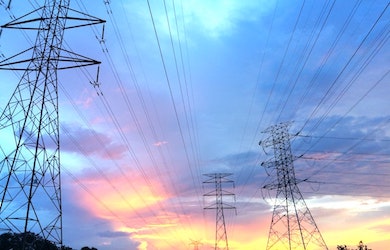As the awareness around the state of our environment increases, there is a greater onus on companies to pay attention to the environmental impact of their business. One way in which companies can do this is to shift to the use of more renewable energy sources. However, a recent study published in the journal Natural Climate Change has uncovered evidence to suggest that company claims about their renewable energy usage might exaggerate the truth.
Renewable Energy Certificates (RECs)
This problem comes from the use of RECs as evidence of the use of renewable energy sources. There is a common assumption that when a company buys RECs, more renewable energy is produced, and emissions from electricity generation from fossil fuels decline proportionately. In reality, a company can receive an REC by paying to support a renewable energy project, and then accounting standards allow companies to report zero emissions for every megawatt-hour of consumed electricity that is matched by a renewable energy certificate. In principle, this sounds positive; however, the study led by Anders Bjørn, a PhD fellow at Concordia University, has uncovered some worrying truths about the assumed “additionality” of renewable energy certificates and the ways they can be exploited knowingly and unknowingly.
Bjørn and his colleagues investigated 115 companies across a range of industries, including some big names like Microsoft, Ford, and Best Buy. These 115 companies combined claimed to reduce their greenhouse gas emissions from purchased energy by 31% between 2015 and 2019. This made them collectively aligned with the 1.5 C goal of the Paris agreement, according to the 4.2% minimum annual linear reduction rate used by the Science-Based Targets Initiative. 89% of these companies claimed emissions reductions through RECs. In fact, two-thirds of the claimed emissions reductions were from certificates that most likely did not lead to additional renewable energy or emission reductions. The study found that in fact, this figure was closer to 10%. The 10% reduction was mainly achieved through actual grid decarbonisation, however, companies actually increased their electricity consumption in the period, negating some of the emissions reductions that were achieved through decarbonisation.
RECs were introduced with the aim of bringing more renewable energy projects online around the world. However, as renewable energy projects have become more common, the price of these RECs have gone down. This means that for energy companies, RECs are bringing in less revenue and giving less incentives to bring additional new renewable energy projects online. This issue is tied in closely to the international nature of certificate markets, allowing companies to buy cheaper certificates from regions with an oversupply, such as Norway. One example is that companies in European countries with dirty energy grids can buy cheap renewable energy certificates issued by old Norwegian hydro-power plants, but this doesn’t lead to new renewable energy generation.
Because of the accounting standards, companies can mislead consumers, media, and even investors, by saying they are powering their business with 100% renewable energy when in reality they are just offsetting their electricity use from fossil fuels through buying RECs, and the deeper truth is that even this is not happening in a lot of cases because the RECs aren’t incentive enough to drive new renewable energy projects. Bjørn says, “What we can see in our study is that companies in most cases are buying certificates that are not doing much, if anything, for the climate, whether they know it or not”.
Efforts to Change
Some companies are now looking at alternative ways to support renewable energy developments. One such way is power purchase agreements (PPAs); these are deals struck with renewable energy developers which obligate the company to buy a certain amount of electricity and the related RECs from a specified renewable energy generator for 10 or more years into the future. One of the critical differences is that this provides a guaranteed long-term revenue stream which can be crucial for the energy provider to secure the funding required to expand its generation capacity. The study agreed that in this case, these are valid representations of real-world renewable energy generation.
Overall the study recommends four points of change:
- The media should scrutinise corporate claims about renewable energy certificates. As with carbon offsets, the media should also pressure companies to provide evidence that their purchase of certificates ultimately leads to emissions reductions.
- Climate-conscious investors should invest in companies that actually contribute to grid-decarbonisation.
- Accounting standards should be changed to ensure that companies can claim emissions reductions only when a purchased certificate leads to lower emissions.
- Policymakers looking to mandate corporate emissions accounting should prohibit the use of ineffective certificates.
Conclusions
The renewable energy industry is growing, but not fast enough to avoid the climate crisis facing the planet. RECs are a positive concept with potential, but they need to be reworked to become less easily exploited. Bjørn and his colleagues hope that drawing attention to this disparity between company claims and the truth about their renewable energy usage will push policymakers and companies to work together to create a higher standard for RECs and learn the lessons for future renewable energy initiatives.
About Pager Power
Pager Power undertakes technical assessments for developers of renewable energy projects and tall buildings worldwide. For more information about what we do, please get in touch.
References
[1] A. Bjørn, S. M. Lloyd, M. Brander and H. D. Matthews, “Renewable energy certificates threaten the integrity of corporate science-based targets,” Nature Climate Change, 9 June 2022. [Online]. Available: https://www.nature.com/articles/s41558-022-01379-5. [Accessed 15 June 2022].
[2] J. Calma, “New research points to bad math behind corporate renewable energy claims,” The Verge, 9 June 2022. [Online]. Available: https://www.theverge.com/2022/6/9/23160508/corporate-renewable-energy-misleading-rec-power-purchase-climate. [Accessed 15 June 2022].
[3] Jason Blackeye (July 2016) from Unsplash.com. Last accessed on 15th June 2022. Available at: https://unsplash.com/photos/-s1w1SguZTI




